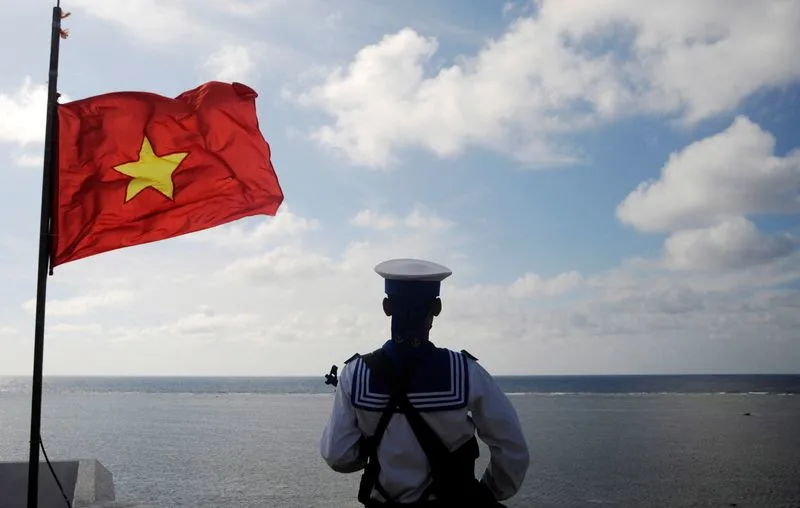By Hanh Thi Hong Dau
Vietnam, given its distinctive geographical position, currently finds itself at a crossroads, coping with challenges from both safeguarding its territorial integrity in the East Sea and concurrently fostering socio-economic development in the Mekong Delta region. However, some current observations raised skepticism regarding whether Hanoi is diverting national interests away from the East Sea, placing greater emphasis on elevating the prominence of the latter issue.
What would Vietnam benefit from this shift? If not for the East Sea, would the Mekong Delta be essential enough to become a new focal point of Vietnam’s national interest?
In the East Sea, Vietnam constantly faces the challenges of security and strategic significance, territorial integrity and sovereign rights. Hanoi’s dilemma for years is rooted in not only ensuring national security but also harmonizing interests among various stakeholders in the region. Notably, the issue necessitates diplomatic engagement with a greater neighbor, China, which has maintained profound ties through historical, cultural, and economic connections.
Vietnam’s leadership faces the imperative of upholding national interests, preventing illegal and aggressive actions of China in the East Sea, while simultaneously avoiding risks of tension or military conflict. The geographical proximity, shared boundaries, and economic interdependence underscore China’s significance as a pivotal partner. How the tensions within a specific issue, particularly the disputes in the East Sea, do not impede cooperation in other domains and how to deal with a wide range of parties in disputes have always been a conundrum for Vietnam’s diplomacy.
Additionally, regarding internal factors, the East Sea issue is intricately intertwined with Vietnam’s national pride together with the image and prestige of its authority. The sentiment “Hoang Sa – Truong Sa belongs to Vietnam” is deeply embedded in the collective consciousness generation by generation across various forms of education and media, including advertising, films, literature and even fashion. Consequently, just an improper policy in the East Sea not only gives rise to security and economic apprehensions but also engenders skepticism and a deficit of confidence in the governing authority’s approach to matters of sovereignty and territory. The ongoing Russia-Ukraine conflict serves as a lesson, as the outbreak of turmoil in another continent promptly raises concerns about the imperative of monitoring security in the East Sea for Vietnam.
If Vietnam’s national interests no longer lie in the East Sea issue, then what issue is more important than the security and survival of a nation?
Socio-economic issues, associated with challenges of water security and energy security in the Mekong Delta, could be an answer. The development in the Mekong Delta region, particularly the growth of Tay Nguyen and the South of Vietnam, obviously is an essential issue because one of the most important goals that the Communist Party of Vietnam has set in the 13th National Party Congress is to become a developed and high-income country by 2045. The advancement of the southern economic regions stands as a pivotal cornerstone of the Vietnamese economy.
As a downstream country, Vietnam is markedly influenced by activities of the headwater countries in ensuring the unimpeded flow of water, judiciously constructing hydroelectric dams to mitigate adverse environmental repercussions, and, notably, preventing a cascade of economic impacts, including agricultural cultivation and fishing. But, unlike the East Sea, nations along the Mekong River can engage in diverse activities within their legal territories without external intervention. As a result, Vietnam grapples with a multifaceted difficulty in the Mekong, involving harmonizing the relations and maintaining independence with a powerful and ambitious nation in the headwater, as well as dedicatedly managing ties with smaller ones with substantial economic development demand.
In fact, Vietnam has interests in and places significant importance on addressing challenges arising from the East Sea and Mekong Delta issues. In essence, it is necessary to acknowledge a country cannot help but develop its economy; however, the nation also cannot develop if it does not ensure security, territorial integrity and sovereign rights. Vietnam’s core interest remains in the East Sea even as it is increasingly concerned about the Mekong Delta, another essential matter. Vietnam’s interests are constant; however, the reaction and expression level of each issue at each time may vary, contingent on national power and the degree of associated threats.
Vietnam’s traditional approach to the East Sea issue has always been to “persistently and patiently fight” (kiên quyết, kiên trì đấu tranh) to resolve disputes in the region through peaceful resolutions. Hanoi is always clearly aware that, if they no longer “persistently and patiently fight”, they will lose their island territory and sovereignty rapidly and permanently. It would be a catastrophe!
The national interests of Vietnam will continue to stay in the East Sea until a territorial agreement is reached among stakeholders, or at least, until the dangers and challenges to its core interests in the area disappear over the horizon.
In 2023, Hanh Thi Hong Dau graduated with a major in International Relations from the Diplomatic Academy of Vietnam, earning the distinction of salutatorian. After completing a 4-month research internship at Laval University (Québec, Canada), Hanh currently serves as a Research Assistant at the Diplomatic Academy.


